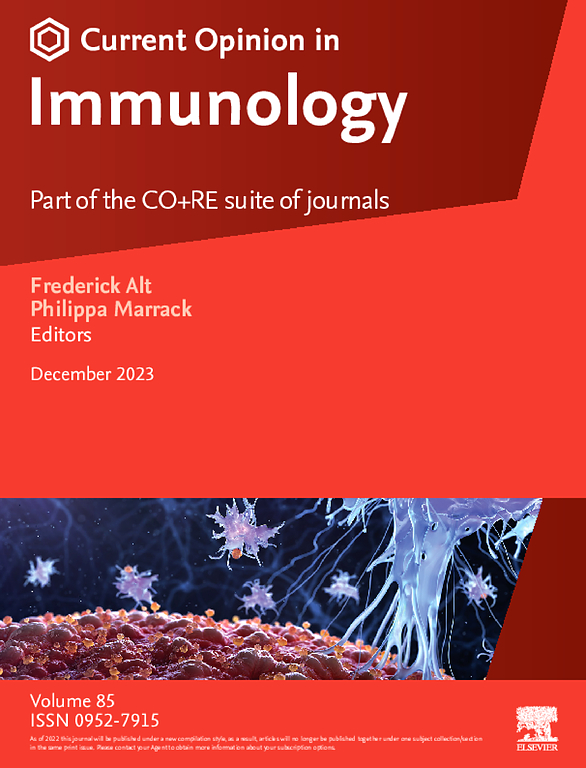Epithelial-immune interactions govern type 2 immunity at barrier surfaces
IF 6.6
2区 医学
Q1 IMMUNOLOGY
引用次数: 0
Abstract
Allergic diseases are acute and chronic inflammatory conditions resulting from disproportionate responses to environmental stimuli. Affecting approximately 40% of the global population, these diseases significantly contribute to morbidity and increasing health care costs. Allergic reactions are triggered by pollen, house dust mites, animal dander, mold, food antigens, venoms, toxins, and drugs. This review explores the pivotal role of the epithelium in the skin, lungs, and gastrointestinal tract in regulating the allergic response and delves into the mechanisms of tissue-specific epithelial–immune interactions in this context, with recent advances highlighting their roles in the initiation, elicitation, and resolution phases of allergy. Understanding these intricate interactions at epithelial barriers is essential for developing targeted therapies to manage and treat allergic diseases.
上皮细胞与免疫系统之间的相互作用制约着屏障表面的 2 型免疫。
过敏性疾病是由于对环境刺激的过度反应而导致的急性和慢性炎症。全球约有 40% 的人患有过敏性疾病,这些疾病大大增加了发病率和医疗成本。引发过敏反应的因素包括花粉、屋尘螨、动物皮屑、霉菌、食物抗原、毒物、毒素和药物。这篇综述探讨了皮肤、肺部和胃肠道上皮细胞在调节过敏反应中的关键作用,并深入研究了在此背景下组织特异性上皮细胞与免疫相互作用的机制,其最新进展突显了它们在过敏的引发、诱发和缓解阶段的作用。了解上皮屏障上这些错综复杂的相互作用对于开发控制和治疗过敏性疾病的靶向疗法至关重要。
本文章由计算机程序翻译,如有差异,请以英文原文为准。
求助全文
约1分钟内获得全文
求助全文
来源期刊
CiteScore
13.30
自引率
1.40%
发文量
94
审稿时长
67 days
期刊介绍:
Current Opinion in Immunology aims to stimulate scientifically grounded, interdisciplinary, multi-scale debate and exchange of ideas. It contains polished, concise and timely reviews and opinions, with particular emphasis on those articles published in the past two years. In addition to describing recent trends, the authors are encouraged to give their subjective opinion of the topics discussed.
In Current Opinion in Immunology we help the reader by providing in a systematic manner: 1. The views of experts on current advances in their field in a clear and readable form. 2. Evaluations of the most interesting papers, annotated by experts, from the great wealth of original publications.
Current Opinion in Immunology will serve as an invaluable source of information for researchers, lecturers, teachers, professionals, policy makers and students.
Current Opinion in Immunology builds on Elsevier''s reputation for excellence in scientific publishing and long-standing commitment to communicating reproducible biomedical research targeted at improving human health. It is a companion to the new Gold Open Access journal Current Research in Immunology and is part of the Current Opinion and Research(CO+RE) suite of journals. All CO+RE journals leverage the Current Opinion legacy-of editorial excellence, high-impact, and global reach-to ensure they are a widely read resource that is integral to scientists'' workflow.

 求助内容:
求助内容: 应助结果提醒方式:
应助结果提醒方式:


